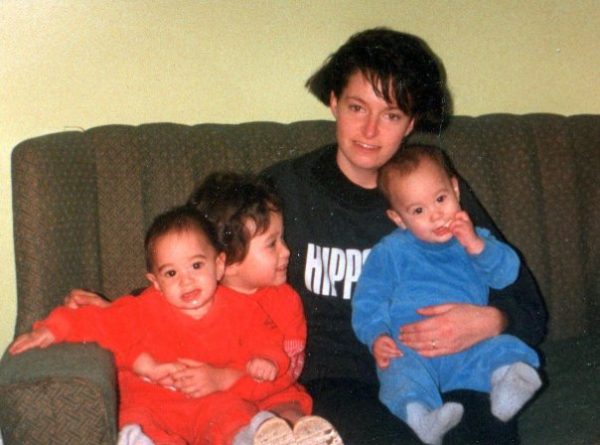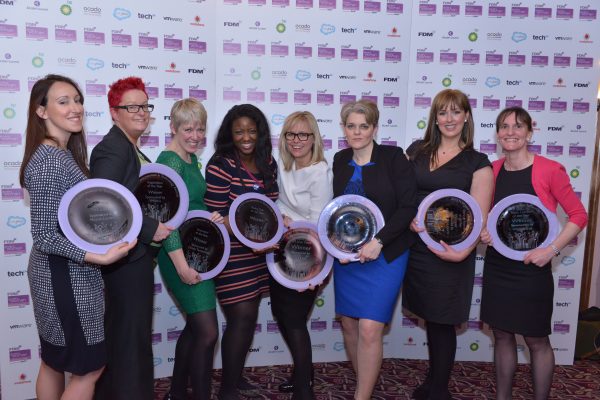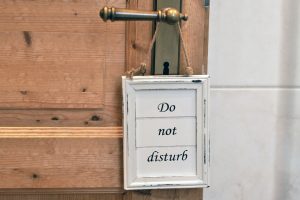Named one of Europe’s 50 most inspiring women in tech in 2015, Dr Sue Black is a champion for women in computing. She’s been called a ‘tech rock star’ and a ‘tech evangelist’, thanks to her inspiring work that is moving us towards digital enlightenment. Daisy Jones spoke to the academic, entrepreneur and grandmother who is shaping the way we think about technology.
One of Sue’s many projects is #techmums, a charity that gives mums the confidence and knowledge to make the most of technology. With a series of hands-on workshops, #techmums’ programmes teach mums in low-income areas basic IT skills like online security, web and app design and essential computing skills, improving not just their confidence in technology but also themselves. First piloted in the summer of 2012, #techmums has now made a real difference to the lives of hundreds of women and their children.
“The success story I always mention, when I’m asked to do a talk, focuses on Aminha, who runs a school uniform shop at a market in the East End,” says Sue, “Learning how to add attachments to an email meant she could send pictures of the uniforms in emails and not send her son on the bus with samples. She came in after the first workshop and said #techmums had already changed her life.”
But digital literacy isn’t just having an impact on women like Aminha; Sue also delivers her workshops and digital skills development frameworks to businesses around the country. Savvify provides a range of training and educational platforms that are designed to significantly up-skill employees with practical tutoring on current and relevant technologies and digital engagement, such as online productivity tools, social networking and media, web design, coding, and emerging platforms – just like #techmums does.
“Both my start ups do the same thing, but for different audiences. I have 20 years of teaching experience in tech thanks to my academic career and I want to empower the whole world around technology.”
Sue’s motivation to educate people about technology comes from her personal experiences. 25 years ago, she was a single parent with three young children living in a council flat in Brixton. Determined to make a better life for her family, Sue took an evening Maths course at a local college, a step that meant she could study a degree in Computing Studies at London South Bank University and later a PhD in Software Engineering. For Sue, education was not just a route out of financial difficulties; it was something she genuinely loved. But she soon found that technology wasn’t always easy for a young woman to break into.
“When I was doing my PhD, I was encouraged to go to computing conferences as it was important to network so that I looked credible when I submitted papers for review. I was really shy and the conferences were always very male dominated so I was scared of talking to anyone. The first time I plucked up the courage to approach someone he thought I was flirting with him.”
However, things changed drastically when Sue attended a Women in Science and Engineering ‘Networking the networks’ conference in Brussels.
“As soon as I walked in, people started talking to me. Everyone was very friendly and chatty. It changed my life really.”
Inspired by the women she’d met, Sue founded BCSWomen, the UK’s first online network for women in tech, in 2001. Reaching over 1,300 members in 2012, the group is still going strong today, hosting countrywide events, sharing information through a women-only online mailing list, providing access to mentors and one of the UK’s largest training networks and campaigning to make the IT profession fairer and more diverse.
Despite Sue’s many successes, there is one cause she is best known for. In July 2008, she began campaigning to save Bletchley Park, where codebreakers, such as Alan Turing, worked throughout the Second World War, which was being threatened by the march of impending housing estates.
“I wanted to raise the profile of Bletchley Park and give it the recognition it deserves. Over 10,000 people worked there, mostly women, and they shortened the war by two years, possibly saving 22 million lives. When I started I thought it’d take six months to save Bletchley Park – in the end, I spent three years campaigning.”
One of the highlights of the ‘Saving Bletchley Park’ campaign was when Stephen Fry took to Twitter to drum up support – another was when Google donated $100,000 to the Bletchley Park Trust in order to put Alan Turing’s papers on public display there.
#bpark You might want to sign the Save Bletchley Park petition. Read @Dr_Black 's reasons why on http://is.gd/ikEh – BP won us the war!
— Stephen Fry (@stephenfry) February 4, 2009
In June 2011, the Bletchley Park Trust announced that the park was finally out of danger. The incredible story is now the subject of Sue’s upcoming book, ‘Saving Bletchley Park’, which was crowdsourced through Unbound.
“The book tells two stories. I wrote about my campaign and QI Elf Stevyn Colgan wrote about the history and achievements of Bletchley Park showing why it was so important to save. The book is being typeset at the moment and it’s coming out in October, but I just want it now really!”
Social media was a big part of Sue’s campaign. Setting up her Twitter account in 2007, she was amongst the first in the UK to use what is now a global social media platform.
“I’ve made a lot of good friends on Twitter – I think I’ve met about a hundred people in real life who I first spoke to there. Social media allows you to meet likeminded people and makes people more truthful. There’s a move towards sustainability and authenticity in corporates and I think that’s to a great extent due to the internet and social media in particular. Traditional power structures within and between organisations are being broken down and communication is becoming more direct.. The days of massive, inflexible, monolithic companies is coming to an end. Companies that aren’t agile are already losing out.”
Sue has also seen social media effect other changes.
“The number of women in technology hasn’t increased in decades, but over the last couple of years it’s become something that people talk about and understand – men as well as women. It’s still going to take time as not everyone changes their mind quickly about things, but attitudes are changing. There’s not enough role models for minorities and that’s why things like Computer Weekly’s top 50 women in IT are so important; it shows women of all ages and backgrounds in different job roles.”
Sue believes that the future for women in technology is for companies to think hard about how to bring women into the workplace and how to stop them from leaving. Raising a family can become a barrier to many women returning to work, but Sue thinks that flexibility in working hours is key to stopping this problem.
“Flexibility is better for everyone, not just women with children. Part of what I’m trying to do with #techmums is to show mums that technology is a great career, so they can maybe have a career in tech and support their children with a tech career too.”
Sue’s mission isn’t just to encourage women to have a career in technology, it’s about empowering the whole industry.
“Technology is often portrayed negatively in the media,” Sue says, “But I don’t believe that’s right. Technology is what’s going to help us save the planet and bring millions of people out of poverty. It’s done incredible things already.”
Top photo: Clive Flint
Related: Meet the entrepreneur and grandmother who’s inspiring working women throughout the UK










